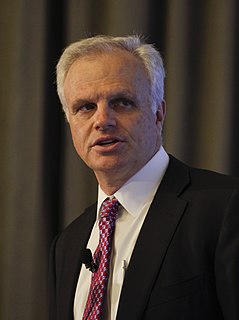A Quote by Matthieu Ricard
We deal with our mind from morning until evening. This mind can be our best friend or our worst enemy. We should do everything we can to improve outer circumstances - remedying poverty, inequalities, conflicts, and so on - while also doing our best to achieve a state of mind that give us the inner resources to deal with the ups and downs of life.
Related Quotes
Before making peace, war is necessary, and that war must be made with our self. Our worst enemy is our self: our faults, our weaknesses, our limitations. And our mind is such a traitor! What does it? It covers our faults even from our own eyes, and points out to us the reason for all our difficulties: others! So it constantly deludes us, keeping us unaware of the real enemy, and pushes us towards those others to fight them, showing them to us as our enemies.
By means of meditation we can teach our minds to be calm and balanced; within this calmness is a richness and a potential, an inner knowledge which can render our lives boundlessly satisfying and meaningful. While the mind may be what traps us in unhealthy patterns of stress and imbalance, it is also the mind which can free us. Through meditation, we can tap the healing qualities of mind.
The purpose of spiritual life is not to create some special state of mind. A state of mind is always temporary. The purpose is to work directly with the most primary elements of our body and our mind, to see the ways we get trapped by our fears, desires, and anger, to learn directly our capacity for freedom.
Our life is composed of events and states of mind. How ewe appraise our life from our deathbed will be predicated not only on what came to us in life but how we lived with it. It will not be simply illness or health, riches or poverty, good luck or bad, which ultimately define whether we believe we have had a good life or not, but the quality of our relationship to these situations: the attitudes of our states of mind. (34)
I say yes to the hot bath and the sandwich - to getting ourselves into the best possible mental shape to identify and then fight the necessary fights from the best possible mind-state: calm, loving, affectionate, precise. Not pushovers but also not zealots. With the idea in mind that "our enemies" are not our enemies; they might seem like that in their present form but that form can morph. We really are large, and really do contain multitudes. But I think it all has to start with a kindly presence of mind, and the aspiration to affection for others.
As Shantideva says, suffering has many good qualities because it purifies our negative karma, increases our renunciation and compassion, reduces our pride, and helps us to overcome our bad mental habits. If we think in this way we will feel that difficult circumstances are our best friends. When our mind is balanced in this way it becomes as stable as Mount Meru, and nothing can cause it to shake.
If we keep this question in mind while planning our days, we will see that we actually have countless opportunities to add to our life force. Being around people and places we love and doing things that give us deep satisfaction, taking time to digest the events in our lives, being less busy, telling the truth, laughing a lot, eating right, exercising regularly, having long talks with those we love-these are among the best ways to nourish our vitality. Our life force thrives when we are completely engaged in the present moment.
I want to stay active. I want to find that mind-body connection every single day, and I want other people to have that because we spend our lives on our phones, at our desks. We're not thinking about our bodies and the mental connections we should be having, and those moments help us push through to live our best life.
We forget that we create the situations, then we give our power away by blaming the other person for our frustration. No person, no place, and no thing has any power over us, for “we” are the only thinkers in our mind. We create our experiences, our reality, and everyone in it. When we create peace and harmony and balance in our mind, we will find it in our lives.
Just as meekness is in all our virtues, so is pride in all our sins. Whatever its momentary and alluring guise, pride is the enemy, "the first of the sins." One reason to be particularly on guard against pride is that "the devilish strategy of Pride is that it attacks us, not in our weakest points, but in our strongest. It is preeminently the sin of the noble mind." Not only of the noble mind, but also of the semi-righteous.





































